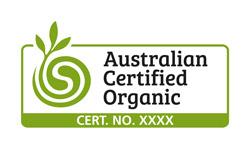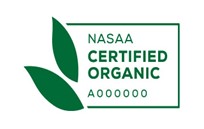Recommendations for selecting inputs for organic gardens
Organic growing is a cultivation system that uses biological fertilisers derived from animal and plant wastes and nitrogen fixing cover crops, and ecologically based pest control instead of chemical fertilisers and pesticides. Organic materials such as animal manures, compost, straw, and other crop residues are applied to the soil to improve soil structure and moisture-holding capacity and to nourish soil life, which in turn nourishes plants. Chemical fertilisers feed plants directly. Biological pest control is achieved through preventive methods, including diversified planting, crop rotation, planting of pest-deterrent species, and the use of integrated pest management techniques.
Under the General Rules (COGS Constitution Appendix 2) organic gardening principles must always be complied with in community gardens. Non-organic pesticides, herbicides or inorganic fertilisers are not to be used. These rules also note that the organic principles for COGS’ gardens draw on Australia’s National Standard for Organic and Bio-Dynamic Produce (September 2016).
Recently updated, the National Standard for Organic and Bio-Dynamic Produce (November 2022) is the framework for commercial production, processing, transportation, labelling and importation of organic produce. It’s Appendices B and C list permitted materials for soil fertilising and conditioning, plant pest and disease control. While there is no requirement for COGS’ gardeners to comply with the standard as produce from COGS’ gardens is not sold, the tables provide a useful guide to the suitability of various materials for organic gardening.
In the ACT a wide range of garden inputs available including mulches, composts, fertilisers and pest control products, are certified as meeting the National Standard by several organisations including The Australian Certified Organic Standard and NASAA Certified Organic (National Association for Sustainable Agriculture Australia). Their bud and spring leaf labels (see below), identify products suitable for use in organic gardens.


Under the National Standard (Appendix B), “Permitted materials for soil fertilising and conditioning” animal manures are also permitted materials; they have specific conditions for use. If manure is applied by sheet composting (a thin layer added on top of the soil), two green manure crops must be grown before the area is planted to crops for human consumption. Alternatively, the organic matter must be fully composted before use.
In COGS’ gardens, the most used manures are horse (often obtained as stable litter, i.e., mixed with straw), sheep, cow and poultry manure, with alpaca manure occasionally available. Where possible these should be obtained from sources known to be managed organically or be certified as organic to reduce the risk of contamination by agricultural and /or veterinary chemicals.
COGS’ gardeners are encouraged to compost fresh manure well before use to reduce the risk of introducing more weeds. If composting is not an option, it is strongly recommended that sheep and alpaca manures be applied as liquids by soaking the pellets in water to make a manure tea and diluting this before application. This will avoid contamination of the soil by weeds that are almost impossible to eradicate, such as Oxalis (pink or bent wood sorrel). The use of sheep manure heavily contaminated with Oxalis bulbs has made a COGS’ plot unusable for the foreseeable future. Mushroom compost (a mix of straw and chicken manure), sometimes used by COGS’ gardeners, is generally weed free, but often very alkaline as is fresh poultry manure.
Appendix C of the National Standard lists Permitted materials for plant pest and disease control. A range of certified pest control products are currently available locally, including snail bait, fungicides and insecticidal soap sprays. At the time of writing no rodenticides have been certified for rat/mouse control. Appendix F (Substances permitted as postharvest/storage treatment) of the National Standard notes that rodenticides can only be used in semi enclosed containers located outside [food] processing areas. Recently marketed “natural” rodenticide pellets are only recommended by the manufacturer for use in enclosed bait stations and are not suitable for use outdoors. The product and its container must be kept away from drains, sewers and water ways (see instructions on the packaging). At present the most effective rat control for organic gardens is likely to be minimisation of potential food sources including compost and other soil additives and reducing potential habitat, combined with regular trapping.
The National Standard, as a general principle, notes that the use of any product has the potential to introduce unwanted residues and contaminants, including heavy metals. This could include wood products such as sleepers, garden edging and pallets. Untreated hard wood and heat-treated pallets (stamped HT) are least likely to result in contamination. Pallets treated with methyl bromide (a pesticide, stamped MB) are not suitable for garden use, or as furniture, nor should be burned (plainpallets.com.au). Pine sleepers treated with copper chrome arsenate (CCA) should be avoided as there is a risk of arsenic leaching into the soil. Alkaline Copper Quaternary (ACQ) treated sleepers do not contain the heavy metals arsenic or chromium. The National Standard, while not specifically referring to sleepers, notes that due to the lack of any satisfactory alternative and due to long standing traditional use in organic agriculture, copper and copper salts can be used for the time being. Composite wood sleepers contain 60 percent wood powder, 28 percent High Density Polyethylene (HDPE, regarded as safe for human health) and 12 percent unspecified additives. While durable and light weight, the HDPE component is made from petroleum, is highly flammable and has a large carbon footprint.
Given ongoing concerns about the pollution of soils, waterways and the ocean by plastics, it is recommended that COGS’ gardens review their use of plastic materials and, where feasible, identify biodegradable alternatives. It is strongly recommended that gardens consider banning plastic weed mats which break down into small pieces that are difficult to remove from soil.
COGS Committee 12 September 2023